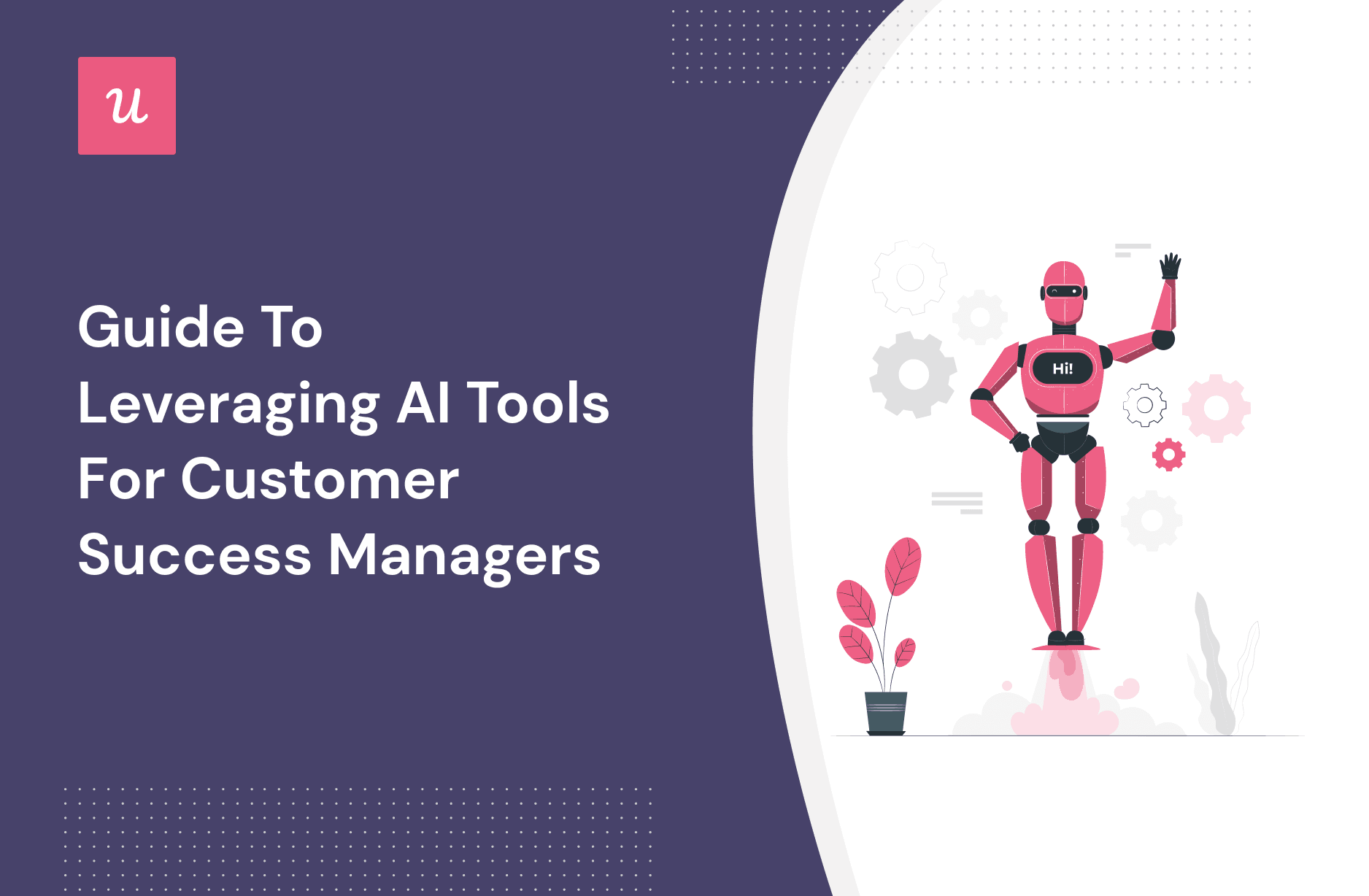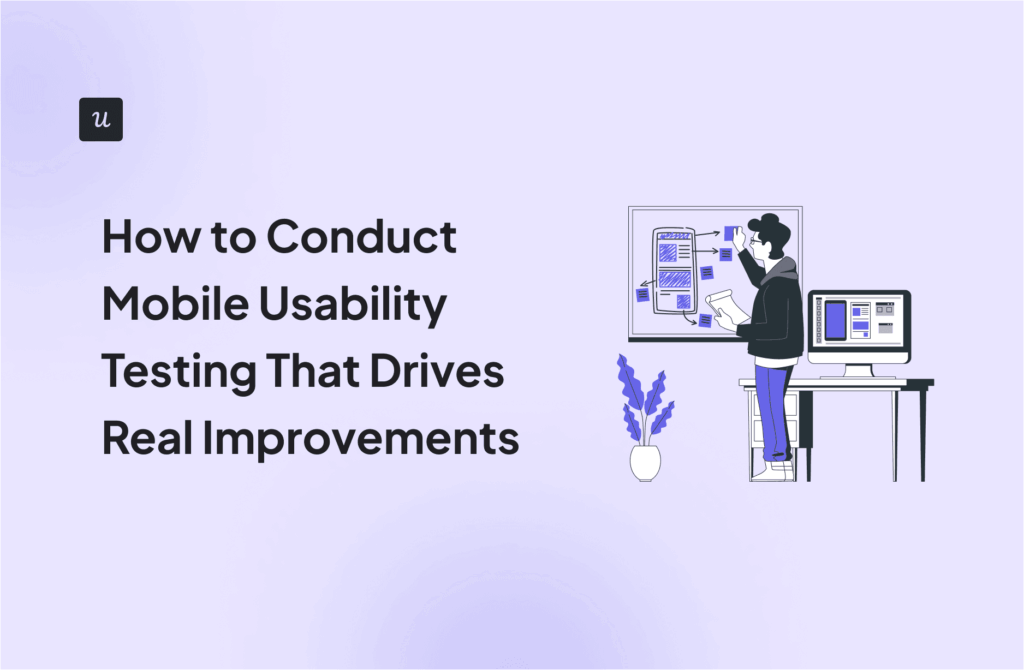
Guide To Leveraging AI Tools For Customer Success Managers
A powerful AI tool can be the perfect companion to your customer success platform. However, AI tools also come with their own caveats.
In this article, we will explore:
- How to leverage AI tools for customer success and retention.
- How can customer success managers address the challenges and concerns around AI when it comes to providing a better user experience?
- Best AI tools for customer success managers (CSMs).
Get The Insights!
The fastest way to learn about Product Growth, Management & Trends.
What are customer success managers (CSMs) & what is customer success?
Customer success is all about building lasting relationships with your customers by helping them get the most value out of your product or service as quickly and effortlessly as possible.
It’s a proactive technique that leverages customer data to predict and address customers’ needs, challenges, and desired outcomes.
Customer success managers are the masters of this process. They guide your customers through their respective journeys with your brand and help them evolve from sales prospects to loyal advocates of your company.
Why are AI and automation important?
In the past few months, SaaS companies have been struggling with budgetary and staffing constraints caused by the broader economic uncertainty in the tech industry. As a result, efficiency has become a key priority for any SaaS company.
And that’s precisely what workflow automation and AI tools can help with. With these, you can automate or at least simplify many of your internal processes. This especially applies to menial housekeeping tasks that are necessary but bring little value to your customers or your company.
With automation and/or AI taking care of such tasks, your organization will have more bandwidth to focus on activities that actually drive value.
Benefits of using AI tools for customer success
AI offers numerous benefits in a customer success setting — let’s explore a few.
1. AI helps improve efficiency and productivity
As we’ve mentioned above, AI tools can help you improve the efficiency and productivity of your CS team by automating manual tasks.
For example, an AI-powered chatbot can help your customers find answers to their questions or concerns during the onboarding process.
Or, you can use an AI chatbot to automate your responses to some of the more common email inquiries.
In both cases, you will relieve your CSMs of the responsibility to manually answer each message and email, which can get very time-consuming and inefficient.
Of course, chatbots cannot provide detailed, personalized answers to very complex questions or know the individual circumstances of each customer. However, they can be very helpful in speeding up communication and reducing hold times.
2. Build personalized & streamlined customer experiences
Personalized customer experiences are the cornerstone of any great customer success strategy. And AI can help you make your customer experiences more personalized and streamlined.
More specifically, AI tools and their analytical capabilities can help you extract more insights from your quantitative customer data. Then, based on those insights, you can create an informed personalized approach to each customer.
For instance, you can use an AI tool to quickly analyze a bulk set of NPS survey responses from your customers. You can then segment your customers based on their respective scores and develop a personalized strategy for each customer.
You can also create, improve, and localize in-app mobile messaging content with an AI writing assistant, along with grammar checks and content customization.
3. Get better insights into customer behavior
Finally, AI tools can also help you better understand and predict your customers’ behavior. Predictive analytics is one of AI’s strongest capabilities. As such, it can empower your CSMs to provide your customers with more proactive support.
For instance, you can use an AI tool to track and analyze your customer’s product usage and in-app behavior. This includes the pages they visit the most, how much time they spend on a certain page, and whether they have any trouble navigating through your app.
Based on these insights, you can make improvements to your product to make it easier to navigate or create self-service guides for your customers.

Best AI tools for customer success managers
There are many AI tools out there, but some of them would be more useful for a customer success manager than others. For this article, we have compiled our top picks.
1. ChatGPT

The most famous AI tool to date, ChatGPT has gained lots of attention because of its versatility. Its extensive knowledge and human-like writing ability can be used for a variety of different tasks — CS activities included.
It can be particularly useful if you’re new to customer success.
For example, you can use ChatGPT to create templates and outlines for customer interviews or quarterly business reviews. You can also use it to write email responses or feed it raw quantitative data that needs to be organized and interpreted.
In other words, ChatGPT can help you not only simplify many of your more mundane tasks but also add an element of human interaction to them.
All this can be done via ChatGPT’s own interface — however, you can also go as far as integrating the platform API into your product. This opens a wide range of other possibilities for improving your customers’ experiences. For example, integrating ChatGPT with your platform’s learning features can enable your customers to receive more personalized assistance based on their behavior.
2. Jasper

Jasper might not be as multifunctional as ChatGPT, but it’s still one of the most powerful and highly-ranked AI writing assistants.
While it is most commonly used for SEO blog content, it’s also capable of writing emails, ad copy, social media posts, and so on.
So, the CSMs who are working closely with their marketing and sales teams will definitely benefit from Jasper.
What sets this tool apart is its user-friendliness. Jasper offers several predefined templates, such as a dedicated tool for email subject lines or the “Feature to benefit” preset. Additionally, it allows you to select the exact tone of voice you want the piece to have, as well as add specific keywords you want to have featured in the content.
According to the creators of Jasper, it is capable of producing original, accurate content 5 times faster than an average human copywriter. As such, it can help you as a CSM save a considerable amount of time on any writing-related task.
Jasper can come in especially handy in time-sensitive matters, such as replying to an urgent email from a disgruntled customer or making an important product update to your customer base.
3. Otter

With Otter, we are moving away from AI tools that are focused on crafting content towards more niche solutions that are just as relevant for CSMs.
Otter is an AI meeting assistant that can take care of all the clerical tasks that come with meetings. It can create real-time voice transcripts, highlight key discussion points, assigns action items to participants, and more.
But that’s not all — some of Otter’s more sophisticated features include things such as Automated Meeting Summaries with links to the meeting notes and presentation slides used during the meeting.
Considering how many meetings an average CSM can have on a daily basis, the benefits of Otter become rather clear.
It can not only save you a ton of time on time-consuming tasks such as transcribing but also ensure a reliable flow of information to all the stakeholders with automated summaries.
4. ChatBot by LiveChat

For our final pick, we have ChatBot by LiveChat — one of the best AI-powered chat solutions.
ChatBot is a no-code, all-in-one platform that allows you to create highly customizable chatbots for a variety of channels — from your website via a widget to Facebook Messenger, Slack, LinkedIn, and more.
Its visual builder allows you to define elaborate conversation trees tailored to your customers’ most common requests.
However, ChatBot wouldn’t be on this list if it didn’t have AI capabilities. Because it’s powered by machine learning and a Natural Language Processing model, it can analyze and study your customers’ input.
Over time, this allows the platform to better understand the context of each message and adapt its output accordingly.
ChatBot can be a great addition to your self-service solutions. It allows you to automate some of your more basic customer interactions, such as questions about features or subscription plans. And because it’s available 24/7, your customers can get their answers regardless of your CS team’s working hours for a faster turnaround.
Challenges of AI & how to address them
As we’ve established thus far, AI tools can be very helpful in a CS environment. However, they also come with a set of unique challenges. Here’s what they are and how you can address them.
1. AI tools lack the human touch a customer success manager has
No matter how sophisticated AI can get, customer success is still a discipline that runs on genuine human interactions. After all, even your low-touch customers would prefer to engage with a real person who can relate to their problems and solve them, rather than with a robot.
As such, an AI-heavy approach can leave your customers disheartened.
Or worse, it can make them feel like you’re not putting enough effort into building a meaningful relationship with them by hiding behind layers of AI and self-service materials.
That’s why the key to using AI tools successfully is moderation and balance.
You should give your customers a choice between interacting with an AI chatbot or talking to a live CSM whenever they have a question or an issue. This will not only make them feel more in control but also organically separate the inquiries that need a human touch from those that can be resolved by AI.
2. Accuracy & reliability challenges of AI tools in customer success
While AI chatbots and language models can be very good at sounding like humans, their output is not always accurate and reliable. The issue is that even the latest AI models were trained using somewhat dated content.
For example, ChatGPT essentially runs on a snapshot of the internet dating back to the fall of 2021. As a result, it’s completely oblivious to any facts or trends that have emerged since then.
To avoid misleading your customers with outdated information, you should avoid using AI tools to create time-sensitive content.
For example, ChatGPT will probably not create a very accurate outline for a presentation on 2023 trends in customer success.
Instead, you should use these tools for more evergreen applications — QBRs or customer profile questionnaires haven’t really changed since 2021.
Also, be sure to thoroughly proofread and fact-check all content that you create using an AI tool.
3. Data access and privacy concerns of AI tools
The concerns about data security and privacy in AI tools have two facets to them:
- On the one hand, how can you ensure that the information that goes through the AI tool (provided and maintained by a third party) doesn’t end up in the wrong hands?
- On the other hand, how do you ensure that your AI tool (say, chatbot) doesn’t violate privacy regulations such as GDPR when interacting with customers?
Unfortunately, you cannot do much about the first issue.
Companies that provide AI-powered solutions are notoriously unforthcoming about how they handle the information that powers and trains their platforms.
The least you can do is do your research on the AI tool you want to implement. Look out for a detailed data privacy policy and compliance with data security regulations such as SOC 2.
When it comes to the second issue, you should avoid collecting sensitive data with or feeding sensitive data to an AI tool. You should also make sure to inform your customers about how and why their input is being used by the tool.
And most importantly, be sure to get their consent to your own data policy before they engage with an AI tool in any way.
Conclusion
Despite their controversial image, AI tools can be very helpful in a CS environment.
From unlocking data-driven insights into customer behavior to automating mundane tasks, they can make CS teams more effective and efficient.
And as they get more capable and sophisticated, it will be curious to see how their use cases in SaaS evolve.
Author Bio
Vasilii Kulev is the Senior Copywriter at Custify. His interests include conversion-driven long-form SEO content, B2B copywriting, and target audience research. Outside of business hours, he is an avid vinyl records collector and car enthusiast.






